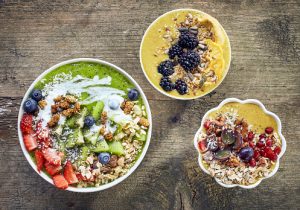
There are many “superfoods” out there that health experts have advocated for. But what exactly makes a food a superfood? Well, for starters, these foods are often packed with nutrients that work to promote good health. You receive an ample supply of vitamins and minerals known for supporting overall well-being. As mentioned, though, these foods often come with a hefty price tag, which can make healthy eating practices difficult to follow. (This miracle berry helps revitalize your cells and boost energy.)
The good news is, no matter what your budget is, you don’t need to save on your health. Below you will uncover some superfood swaps that are more affordable, allowing you to stay on a budget and eat well too.
8 superfood swaps if you’re on a budget
Broccoli for kale: Kale is hailed for being an ultimate superfood, but you can easily (and cost effectively) swap out kale for other types of greens, such as broccoli, Brussels sprouts, or cabbage – the cheaper options.
Rapeseed oil for coconut oil: Your heart needs healthy fats, but if coconut oil comes with a high price tag you can easily swap it for rapeseed oil, which will provide you with monounsaturated fat that can benefit your heart.
Brown rice or lentils for quinoa: Quinoa contains fiber and protein, but so do brown rice and lentils. Combing the two can give you the goodness of quinoa for less.
Blackberries for goji berries: Not only are blackberries cheaper than goji berries, but they are just as beneficial in terms of vitamins and contain less sugar than goji berries! (This is your best defense against the #1 cause of premature aging.)
Flax seeds for chia seeds: Both flax seeds and chia seeds contain heart-healthy fats; the difference is, flax seeds are cheaper.
Black tea for green tea: Benefits of black and green tea are quite similar, except that black tea won’t break the bank in the long run.
Fresh or frozen berries for blueberries: Consuming any type of berries is good for your health. Considering that blueberries can be costly, opting for other seasonal varieties or even frozen ones is a good way to get in your necessary vitamins and nutrients.
Spinach for spirulina: Consuming spinach not only gives you a dose of vitamins, but it also counts towards your daily intake of vegetables (essential for good health).
By making these simple superfood swaps, you can reap the benefits of the popular superfoods but at a lower price.
Related: 16 superfoods for a healthy heart